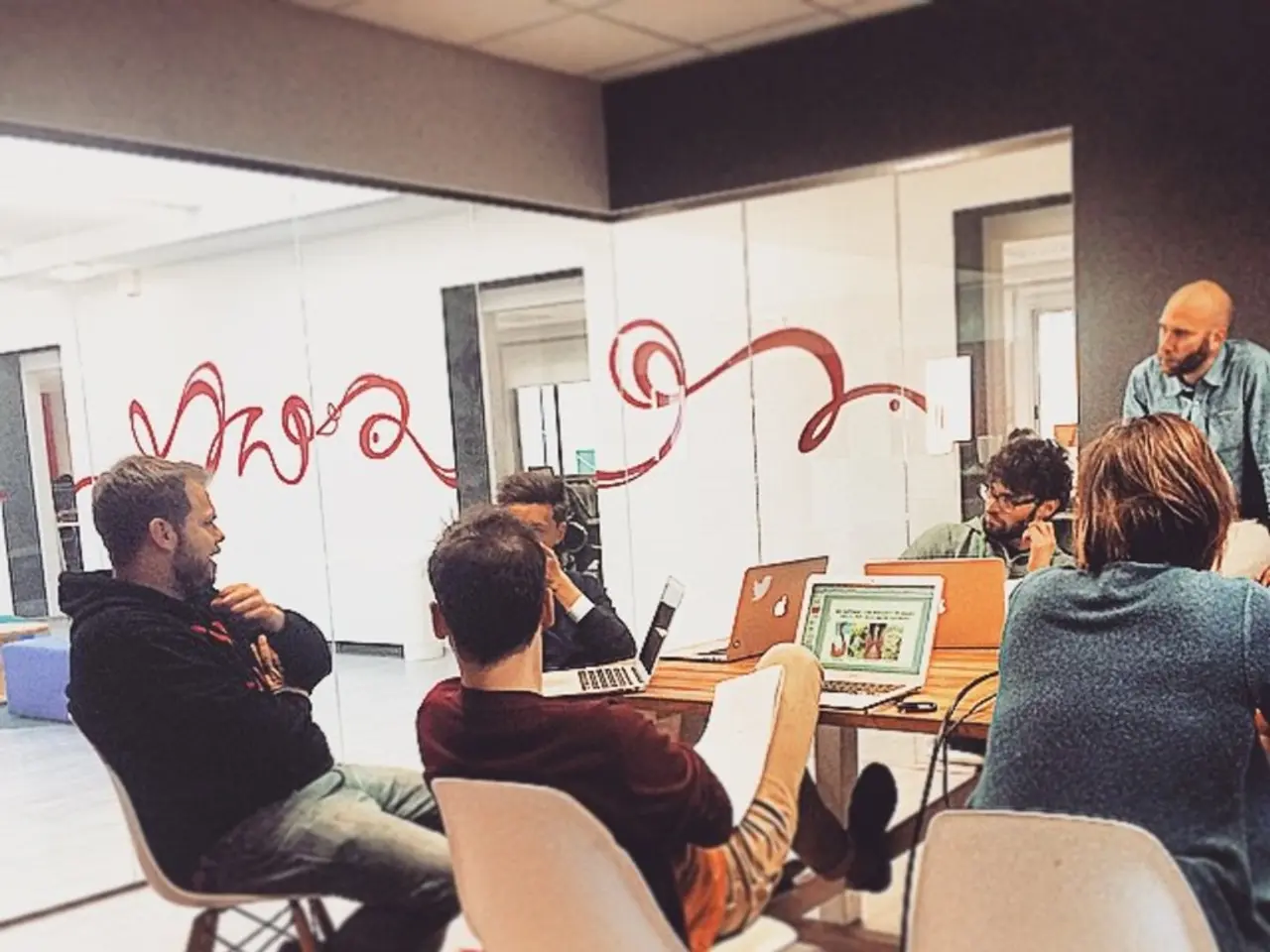AI-driven innovation propels Toyota and other lean organizations to the forefront of leadership
In the rapidly evolving world of technology, a significant trend is emerging: the adoption of an AI-first strategic orientation by mainstream companies. This approach involves fundamentally redesigning business processes and organizational priorities to leverage AI capabilities at their core [1][3][5].
Companies are moving beyond simple AI deployment for automation towards reshaping workflows and inventing new business models powered by AI. For instance, AI-powered customer engagement tools like L’Oréal’s Beauty Genius virtual assistant [1][3] are becoming increasingly common.
Executives view AI as a foundational shift, not a passing trend, embedding AI across consulting, technology, and business functions to drive faster, more relevant, and leaner organizations [2][4][5]. Companies like Wipro have trained tens of thousands of employees in generative AI and reorganized around AI-powered consulting to lead enterprise innovation [2].
However, challenges and limitations remain, especially in the ability of AI to manage complex human tasks. While AI can automate routine and repetitive functions, up to 80% of programming and knowledge work remains inherently human-centric, requiring judgment, creativity, and complex decision-making that AI cannot replicate fully [5].
Daron Acemoglu, a Nobel Laureate economist from MIT, predicts that only 5% of all tasks currently undertaken by humans will be profitably automated over the next 10 years [6]. This underscores the importance of a more human-centric approach to AI, emphasizing the importance of tacit knowledge in every workplace, as called for by economist Daron Acemoglu [7].
The Shingo Institute, which promotes operational excellence, consistently finds that people skills are foundational for companies that sustain success in continuous improvement. These companies achieve double the productivity from technology but spend half the amount compared to traditional companies [8]. Ken Snyder, the Institute's executive director, states that companies with a clear purpose and engaged employees utilize technology more effectively and efficiently [9].
In the workplace, AI tools have been unsuccessful in navigating feelings and emotions, according to HR consultant Gina Benedict [10]. This highlights the need for a more human-centric approach to AI, ensuring that technology serves as an augmenting tool, complementing rather than replacing humans in complex tasks.
As AI continues to evolve, it is clear that the trend is towards AI-first enterprises that redesign their workflows, products, and strategies around AI. However, AI still fundamentally serves as an augmenting technology, complementing rather than replacing humans in complex tasks due to its limitations in understanding and managing complex human-centric work [1][5].
References:
[1] McKinsey & Company. (2022). The AI-first enterprise: How artificial intelligence is transforming business. [Online] Available at: https://www.mckinsey.com/business-functions/mckinsey-digital/our-insights/the-ai-first-enterprise-how-artificial-intelligence-is-transforming-business
[2] Wipro. (2022). Wipro unveils new AI-powered consulting unit to lead enterprise innovation. [Online] Available at: https://www.wipro.com/about-us/press-releases/wipro-unveils-new-ai-powered-consulting-unit-to-lead-enterprise-innovation
[3] L’Oréal. (2021). L’Oréal launches Beauty Genius, a new AI-powered virtual assistant. [Online] Available at: https://www.lorealnews.com/press-release/loreal-launches-beauty-genius-new-ai-powered-virtual-assistant
[4] Deloitte. (2021). The AI-powered enterprise: A guide for C-suite executives. [Online] Available at: https://www2.deloitte.com/us/en/pages/about-deloitte/articles/the-ai-powered-enterprise-a-guide-for-c-suite-executives.html
[5] PwC. (2021). AI, robotics, and intelligent automation: A guide to creating value. [Online] Available at: https://www.pwc.com/gx/en/services/consulting/technology/ai-robotics-intelligent-automation/publications/ai-robotics-intelligent-automation-guide.html
[6] Acemoglu, D. (2022). The limits of automation: Why only 5% of tasks will be profitably automated over the next 10 years. [Online] Available at: https://www.project-syndicate.org/commentary/limits-of-automation-only-5-of-tasks-will-be-profitably-automated-over-the-next-10-years-by-daron-acemoglu-2022-05
[7] Acemoglu, D. (2022). A call for a more human-centric approach to AI. [Online] Available at: https://hbr.org/2022/04/a-call-for-a-more-human-centric-approach-to-ai
[8] The Shingo Institute. (2022). The power of people: How people skills drive operational excellence. [Online] Available at: https://www.shingo.org/resources/articles/the-power-of-people-how-people-skills-drive-operational-excellence
[9] Snyder, K. (2022). Technology and the engaged employee: How purposeful companies utilize technology more effectively. [Online] Available at: https://www.shingo.org/resources/articles/technology-and-the-engaged-employee-how-purposeful-companies-utilize-technology-more-effectively
[10] Benedict, G. (2022). The limitations of AI in navigating feelings and emotions in the workplace. [Online] Available at: https://www.forbes.com/sites/ginabenedict/2022/06/15/the-limitations-of-ai-in-navigating-feelings-and-emotions-in-the-workplace/?sh=7a2e16887e86
Businesses are increasingly employing Artificial Intelligence (AI) to revolutionize workflows and invent new business models, such as L'Oréal's AI-powered customer engagement tool, Beauty Genius. Despite this trend, executives acknowledge that AI serves more as an augmenting technology, complementing human abilities in complex tasks, rather than replacing them due to its limitations in managing human-centric work. The integration of AI in finance, technology, and business functions must, therefore, emphasize the importance of human skills and tacit knowledge.




